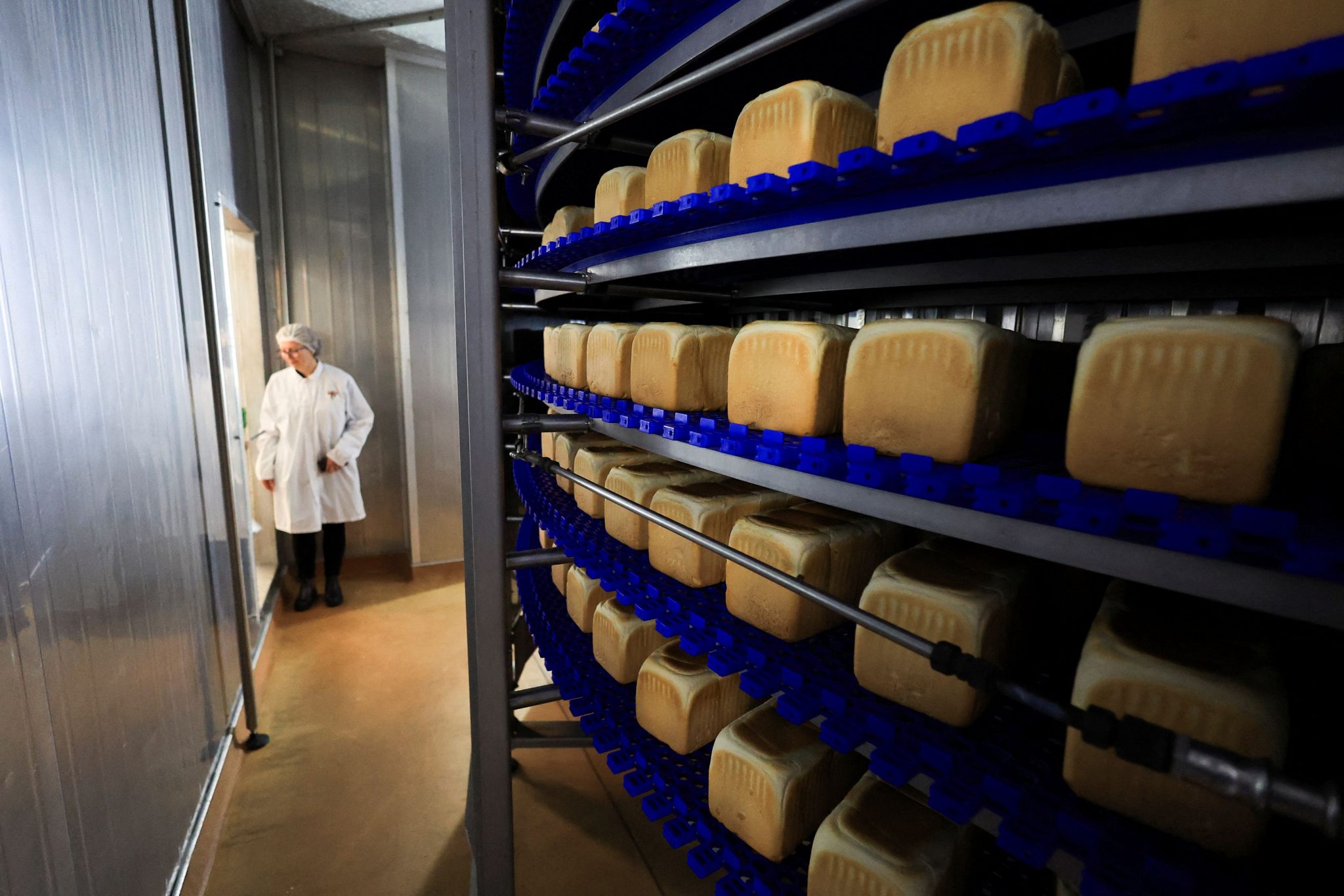
Fresh bread in Greece is still the second cheapest in Europe, despite the cost of half a kilo of bread increasing 39% since 2020, according to a report at OT.gr.
The figures are based on a nationwide survey by the Federation of Greek Bakers that was presented by the Athens Chamber of Crafts.
Price Trends in Greece
In Greece, the price stands at €1.21, which is 48% lower than the European average price of €1.80.
This marks a 39% increase since 2020, which is slightly above the European average price change.
The report at OT notes that the rise in bread prices in Greece, which remains lower than in most of Europe, has been driven by increases in the cost of raw materials, electricty, natural gas and labor costs.
In detail:
- Raw materials (wheat-flour): The price of milled wheat in Greece saw a significant rise from August 2021 until early June 2022, reaching its highest price. The cost jumped from €230/ton to €260/ton in the month of August 2021. Rates remained stable until early October but then continued to rise to a stunning €400/ton by June 2022. The following month rates started declining.
- Electricity: From 2019 to 2023, electricity prices for non-household consumers in Greece were above the EU-27 average. But in 2023, Greece’s electricity prices were lower than those in countries such as France (€0.1734/kWh), Croatia (€0.2039/kWh), Italy (€0.1745/kWh), and Hungary (€0.1836/kWh).
- Natural Gas: Similar to electricity, natural gas prices saw significant increases across the EU in 2022, with a decline in 2023, though they remain higher than in 2021. Greece’s natural gas price in 2023 was lower compared to countries like the Czech Republic, Germany, France, Croatia, Italy, and North Macedonia.
- Labor costs: Labor costs have risen compared to 2019, with a 17% increase in 2023 and a 25% rise in the second quarter of 2024 compared to the same period in 2019.

Businesses in the Bread Industry
According to Eurostat, in 2021, there were 133,851 businesses across the EU involved in the production of bread, fresh pastries, and cakes. The ratio was 2.98 businesses per 10,000 residents.
In Greece, there were 8,391 such businesses, with 8 businesses per 10,000 residents, the highest ratio in the EU, points out OT.
In 2021, the net turnover for bread, fresh pastries, and cakes in the EU was €90 billion, with an average turnover of €672,389 per business.
Greece ranked 23rd on this list, with a net turnover of €1.856 billion for 8,391 businesses, resulting in an average turnover of €221,294 per business.
Over the last decade (2014-2024), 2,622 new businesses were established in the bread and bakery sector, while 429 businesses were deregistered. A total of 2,193 businesses have been added to the General Commercial Registry (GEMI) over the past decade.
Decrease in Consumption
According to the data presented, bread consumption in Greece (in kilograms) has been gradually declining from 2019 to 2022. Bread consumption decreased by 22,164 tons from 2019 to 2022, while disposable income dropped by 30%.
Greeks spend on average €24.18 per month on bread, with the highest consumption among households earning between €1,800 and €2,000.
Consumers expressed a desire for additional services from local bakeries, such as coffee, ready meals, and salads, as well as specialized products like gluten-free or wheat-free bread.
Source: tovima.com
Latest News

PM Mitsotakis to Chair New Democracy’s Committee Meeting
Today’s meeting is seen as a crucial opportunity to halt internal disputes within ND and reaffirm unity within the party.

Trump Tariffs Jeopardize Growth: Piraeus Chamber of Commerce
The tariffs, aimed at reducing the U.S. trade deficit, are expected to have both direct and indirect effects on the European economy

EU Condemns Trump Tariffs, Prepares to Retaliate
As tensions escalate, the EU is expected to continue negotiations with Washington while preparing for potential economic retaliation.

The Likely Impact of Trump Tariffs on Europe and Greece
Trump tariffs are expected to negatively affect economic growth in the Eurozone while Greece's exports could take a hit.

Motor Oil Results for 2024: Adjusted EBITDA of 995 mln€; Proposed Dividend of 1.4€ Per Share
Adjusted EBITDA for 2024 was down 33% yoy. The adjusted profit after tax for 2024 stood at 504 million euros, a 43% decrease from the previous year

Cost of Living: Why Greece’s 3% Inflation Is Raising Alarm
Greece appears to be in a more difficult position when it comes to price hikes, just as we enter the era of Trump’s tariffs.

Fitch Ratings Upgrades the Four Greek Systemic Banks
NBG’s upgrade reflects the bank’s ongoing improvements in its credit profile, Fitch notes in its report, including strong profitability, a reduction in non-performing exposures (NPEs), and lower credit losses

Trump to Announce Sweeping New Tariffs Wednesday, Global Retaliation Expected
With Trump's announcement just hours away, markets, businesses, and foreign governments are bracing for the fallout of one of the most aggressive shifts in U.S. trade policy in decades.

Inflation in Greece at 3.1% in March, Eurostat Reports
Average inflation in the eurozone settled at 2.2%, compared to 2.3% in February

Greece’s Unemployment Rate Drops to 8.6% in February
Despite the overall decline, unemployment remains higher among women and young people.










































 Αριθμός Πιστοποίησης
Αριθμός Πιστοποίησης